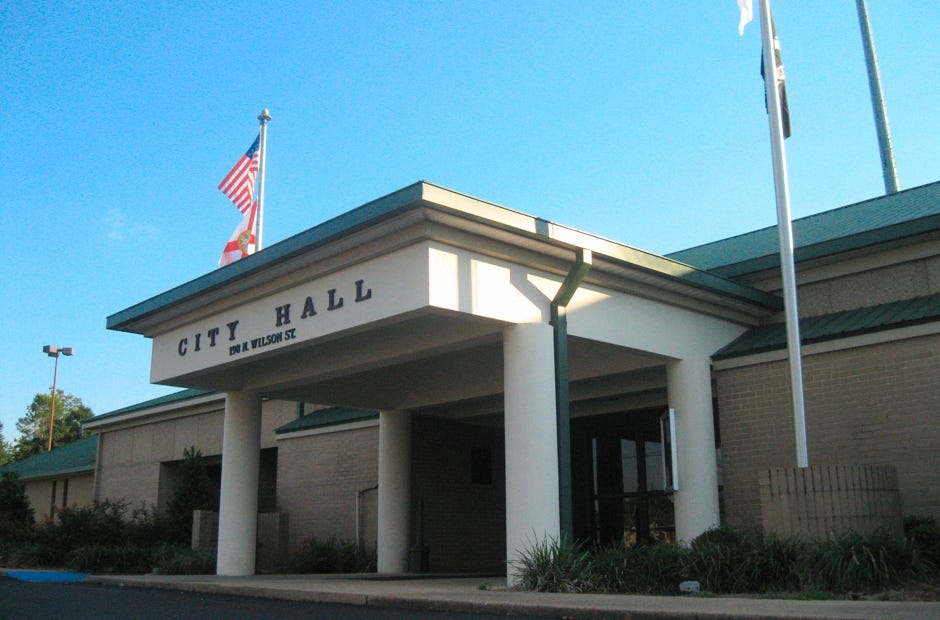
A group devoted to protecting the separation of church and state has contacted officials with the City of Crestview to express concern with its invocation policy at council meetings.
The council recently adopted a policy that involves identifying a volunteer from a "wide pool of local clergy" to lead the council in prayer. The clergy members must live within the city of Crestview or within five miles of the city limits.
But that's a policy that invites council members to essentially "worship on taxpayers' time," according to a Freedom From Religion Foundation email that was sent Oct. 26 to former council president Shannon Hayes.
"The City Counsel (sic) ought not to lend its power and prestige to religion by inviting religious leaders to give prayers," the email said, adding that one in five Americans are not religious and may feel coerced and intimidated.
Former Council President Shannon Hayes, to whom the email was addressed, said he received it but didn't pay any attention to it.
"I threw it in the trash," he said. "Because I wasn't interested in what they were saying."
City Clerk Elizabeth Roy said that under the policy, city employees compile a list of "religious congregations" to be included in the invocation list. Those organizations are sent a letter inviting members of the clergy and other religious leaders to offer an invocation "for the benefit and blessing of the City Council," according to the policy.
Roy added that someone who was not on the list, but is interested in speaking, could contact city hall and request to be put on the calendar.
"We went through the internet, though newspapers, couldn't find anything within our boundaries that listed anything that wasn't religious," she said. "We didn't exclude anyone."
Annie Laurie Gaylor, co-president of the Freedom From Religion Foundation, which is based in Madison, Wisconsin, said that the policy is still problematic.
She said that even if the city is open to others making "inspiring remarks" before the meeting, the amount of taxpayer time and energy spent looking for clergy gives the impression that religious organizations are favored.
"When it's opening with a prayer, it's giving the impression that it thinks citizens should pray," she said. "That's a lot of pressure to put on somebody who goes before you to ask a favor, which is usually why someone goes before a city council meeting."
She added that someone who is a nonbeliever might feel compelled to stand up or mouth "platitudes," rather than stand out.
The city's policy requests that speakers refrain from denigrating nonbelievers or religious minorities, threatening damnation or preaching conversion, the policy states. It further encourages speakers to express ideals relating to peace and security for the nation, the safety of first responders, wisdom for lawmakers and justice for the people.
Gaylor has a simpler solution that she hopes council members will consider.
They should "pray on their own time and dime," she said. "We think they should just drop prayer all together."
This article originally appeared on Crestview News Bulletin: Foundation questions Crestview invocation policy
